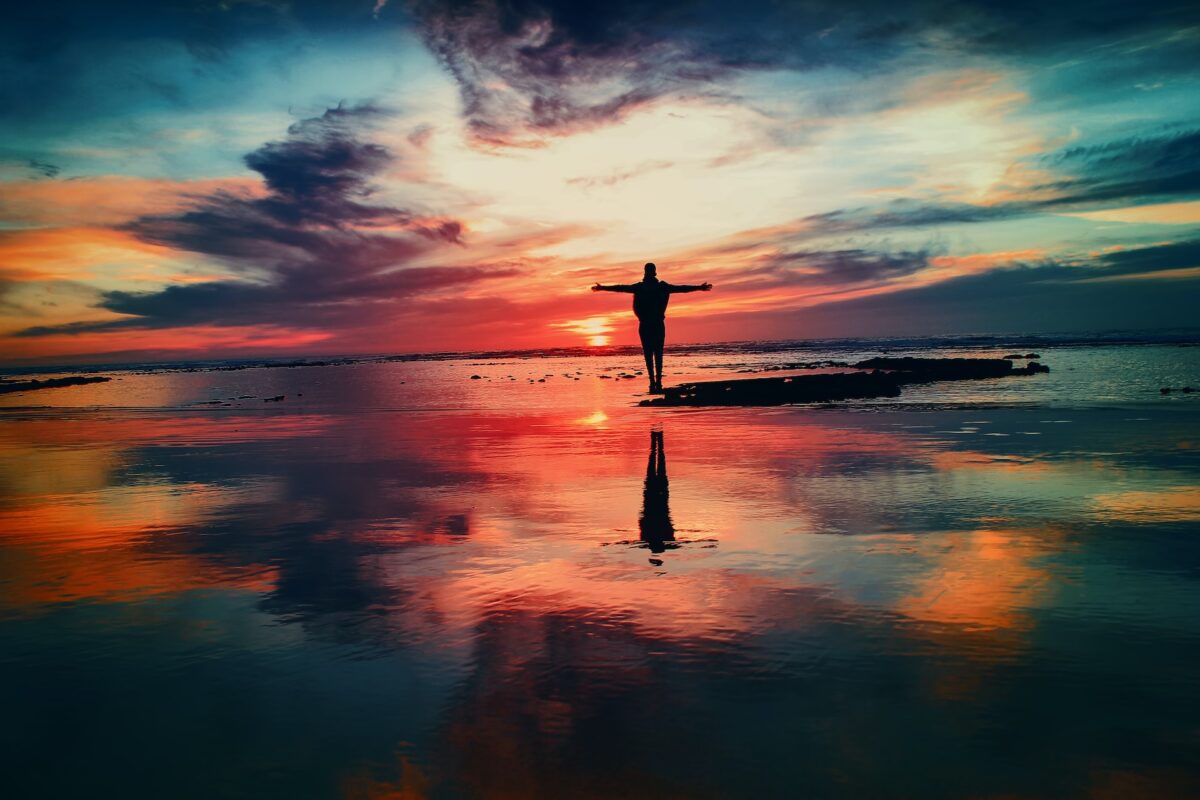Year after year slips by, and with it drown ups and downs of each one’s lives. The more closely I am unravelling life, I find there is no real purpose to it other than living each day as it comes by. Building mansions, stocking wealth, establishing empires all deem like superimposed goals to give ourselves a false sense of purpose and direction. While the simplest one seems filling our heart with some calm and joy. However, these two purposes, the materialistic versus the abstract are inherently conflicting and irreconcilable. Because with every worldly goal comes insecurity and attachment and these naturally delude any salvation you might be looking for.
I absorbed this philosophical hypothesis most realistically while touring a government hospital and mental asylum up close last month. My father is associated with both these institutes serving wherever he can and hence the privilege. As we went around seeing the asylum inmates, a strange melee of emotions was fusing inside me. But most astonishing was to learn that some of these patients have been around for more than a decade. No one comes to visit them nor do they have anyone to go to.
They go through the motions of life like bathing, eating, playing and sleeping as the paramount purpose of their life. There is none else. And the purpose of their care takers is to get them to accomplish these most basic activities day after day. As we strolled to the ladies’ ward, there stood an inmate animated and beaming to have visitors. Once the doctor got chatting with her, the inmate almost beseeched to call her sister in ‘Madras’ to come and take her. My heart was almost quivering with emotions by then but it paused when we were told that she has been saying and waiting for this for the last 15 years or more.
No one really cares for most of these patients whether they live or die and yet they are living. Unsurprisingly, their living gives purpose to their care takers’ lives. I asked the staff if they ever felt depressed or unnerved by their work being in close proximity to the mentally unstable and challenged patients. Their unanimous cheery reply was, “No, we feel very happy to be able to help them and reach out to them even in small ways.” It seemed like the most profound purpose to me. It’s imperative to note that these doctors and caretakers take away only basic decent packages home where some of them could find greener opportunities elsewhere. But their empathy keeps them rooted and redefines their lives.
The other time my nephew and I went around the maze-like government hospital’s gynaecology department. Flocks of underprivileged humans swarm the corridors with hope of succor flitting their eyes. The head there, Dr. Shilpa informed us how each doctor and resident intern of the department contributes a part of their salaries to aid the less fortunate patients coming in hordes. She went ahead and said something about my father too, “I haven’t seen a gem of a person like him who has never left a problem unsolved. And you must carry his legacy forward.” I have always felt extremely fortunate, grateful and privileged to have been born in the family I am born. However, at that moment I not only felt proud and blessed but deeply responsible to be able to contribute meaningfully with my life as well.
She then pointed how the young doctors were not only learning medicine but developing a sense of compassion in small measures. In that moment, “Empathy” took centre stage for me from its understated seat. Even when we aren’t able to contribute or better things tangibly, a heart that empathizes with others goes a long way in bringing a mental uplift. It has the propensity to pierce through darkness and despondency. And if we each could penetrate just a tiny corner, imagine how different would the world’s vibe be?
However, my mother’s wisecrack words brought in some reality check. I was narrating her the mental asylum episode about how some inmates are waiting for decades for their families. But most families refuse to accept or care for such unstable members. The social isolation and negligence only pushing them further to the margins. After appreciating the asylum staff’s efforts and feeling sorry for the inmates, my mother added matter-of-factly, “In today’s times when families aren’t able to care for their able and stable members, what can you expect to care for unstable members.”
She wasn’t entirely wrong rather straightforward. In fact, unwittingly she voiced the great philosophers David Hume’s and Confucius’s views. As a species, we are good natured beings who care for others but can be nasty or selfish too. The news of a child in another country caught in a life-threatening situation concerns us. We follow the news of his rescue because that’s seems inherent in us. Similarly, the immense philanthropy and emotional charity done in the world is a proof that we are a kind-hearted species by and large. Yet, family feuds, relationship discord, isolation, parental disregard, sibling animosity are as prevalent and ubiquitous as human empathy.
Does it make you wonder about this dichotomy? A species as empathetic as us who cares and prays for random victims of a war but is insensitive, unkind, almost frustrated with their own kin. I came up with my own explanation. The recipients of our generosity or charity, both material and emotional, are usually strangers or mere acquaintances or people lower in the social or financial hierarchy or victims of fate. These beneficiaries are not in a position to challenge our ego in any way, in fact they gratify it enormously.
On the other hand, our own families, relatives, colleagues or friends are our peers who well within their social limits tend to constantly prod our ego in some way or the other. Questions of authority, respect, protocol, trust all come up regularly. In the face of which even being civil to them seems cumbersome. It’s not about who is right or wrong in such situations. The fact that there is mutual ego-pricking without either realising it, makes the empathy quotient almost zilch. Despite this, material benevolence can still be bestowed upon such near and dear ones. But emotional charity is impossible without empathy. And this is where we mostly fall short.
Our ego incessantly in flux of passions and perceptions, gets empathetic at anyone who isn’t a threat to it. In fact, such kindness even boosts it. But this fragile substance turns hostile at anyone who scrapes it even lightly.
So where do you think we’ll be by the end of another year? My guess is at the same place as we were at the end of 2022. An inherently good-hearted species who miserably fails at the feet of its ego. Who raze down eco-systems destroying homes of several species but then also build shelter homes for the homeless. Who indulge in philanthropy open heartedly but are stingy with feelings for their parent/partner/friends. Who never tire of asking the big question, “What is the purpose of this life?” and then chase the most superficial things as its noblest goals.
My conclusion while processing this entire post is that life doesn’t need a purpose to drive it. It just needs some love. “Is it too much or too little to ask of life?” as remarked in ‘Knulp’ by Hermann Hesse.
~Radhika Mimani
Photo Credit: Mohamed Nohassi






